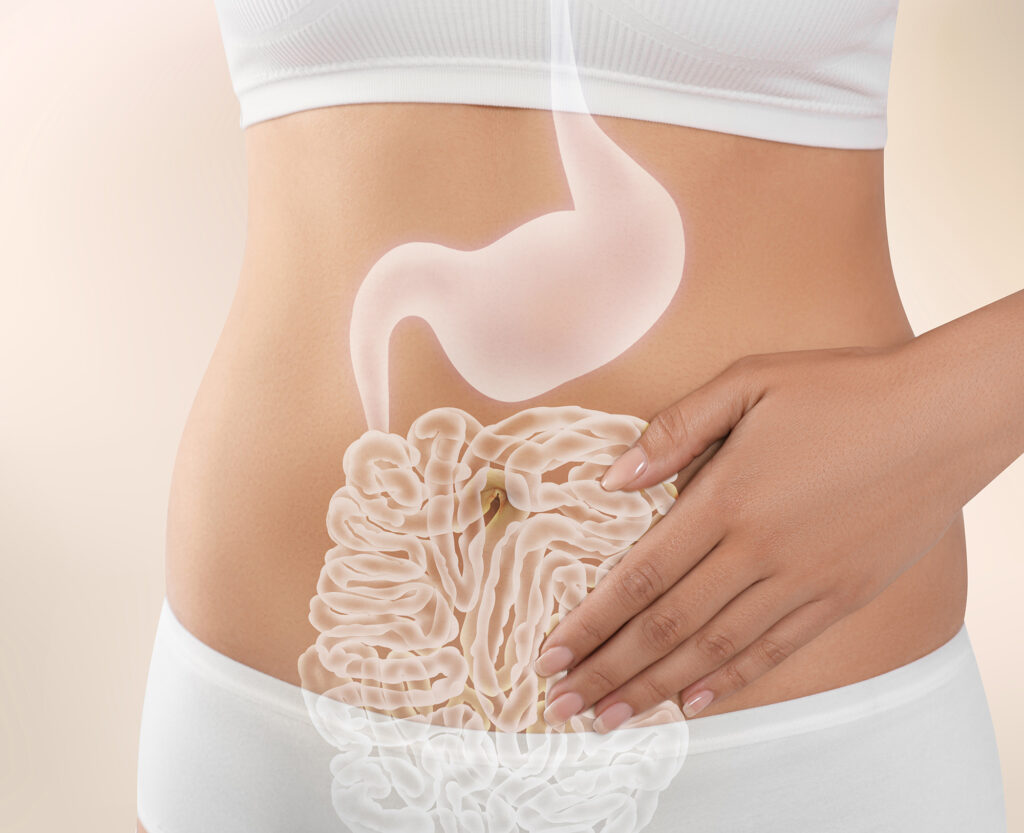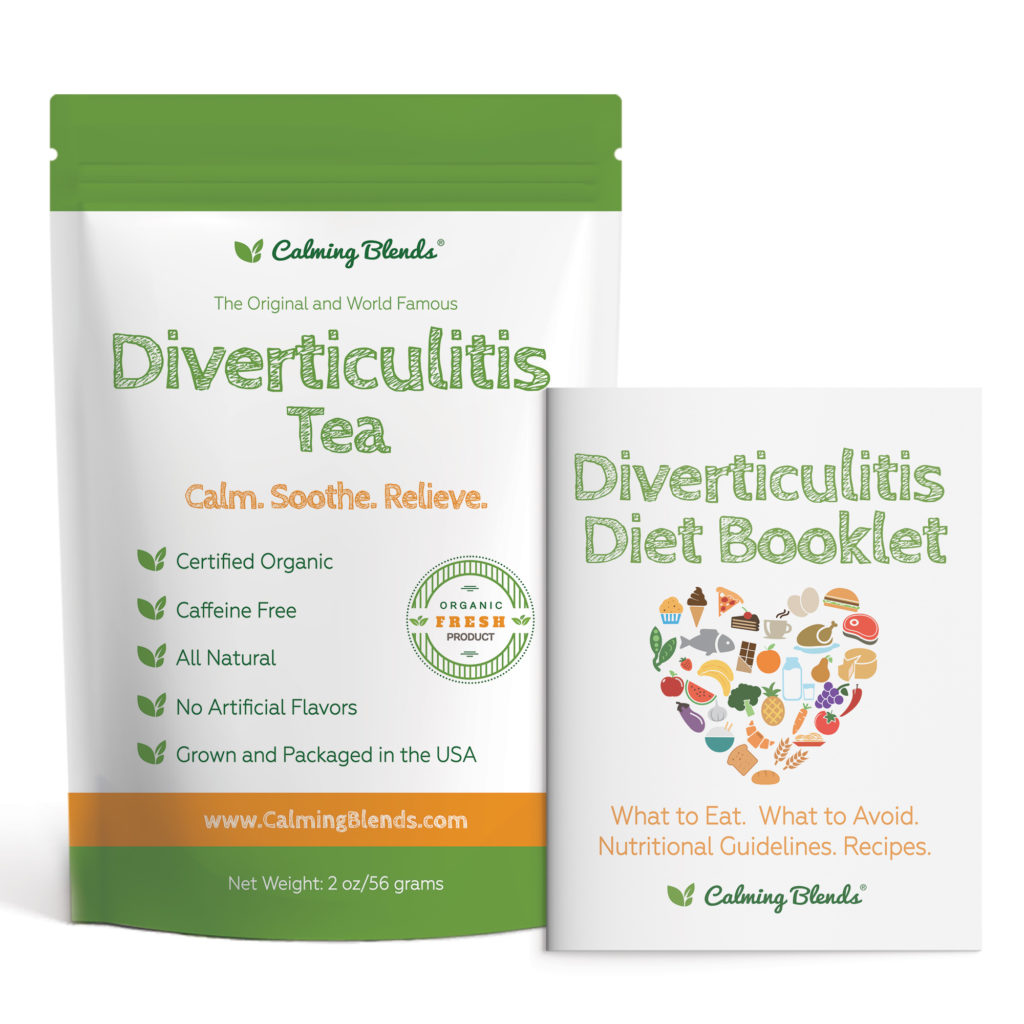Preventing Diverticulitis Recurrence: A Comprehensive Guide to Long-Term Gut Health

Preventing Diverticulitis Recurrence: A Comprehensive Guide to Long-Term Gut Health
Preventing diverticulitis recurrence is essential for maintaining a healthy and comfortable life after experiencing this painful condition. With the right dietary changes, lifestyle adjustments, and proactive health measures, you can significantly reduce the chances of future flare-ups. In this comprehensive guide to long-term gut health, we’ll explore practical strategies to keep your digestive system in balance, featuring tips and insights to support your wellness journey.
At Calming Blends, we specialize in promoting digestive wellness through our Diverticulitis Tea. This blog will provide practical strategies to prevent diverticulitis recurrence and ensure your gut health is a top priority.
Understanding Diverticulitis and Recurrence Risk
Diverticulitis occurs when small pouches (diverticula) that develop in the intestinal wall become inflamed or infected. If you’ve experienced diverticulitis once, you have a higher chance of experiencing it again—about 30% within five years, according to the American Journal of Gastroenterology.
While medication and surgery address acute issues, preventing recurrence requires consistent effort in managing diet, lifestyle, and overall health.
Top Strategies to Prevent Diverticulitis Recurrence
1. Follow a High-Fiber Diet
A diet rich in fiber is one of the most effective ways to keep diverticulitis at bay. Fiber softens stool, prevents constipation, and reduces pressure on the colon, minimizing the risk of diverticula inflammation.
Best Sources of Fiber:
- Fruits: Apples, pears, berries, and oranges.
- Vegetables: Broccoli, carrots, spinach, and zucchini.
- Whole Grains: Oatmeal, brown rice, quinoa, and whole-grain bread.
- Legumes: Lentils, black beans, chickpeas, and peas.
- Nuts and Seeds: Almonds, sunflower seeds, and flaxseeds (if cleared by your healthcare provider).
The recommended daily fiber intake is 25 grams for women and 38 grams for men, as per the Academy of Nutrition and Dietetics. Gradually increase fiber intake to avoid gas or bloating, and ensure you drink plenty of water to aid digestion.
2. Stay Hydrated
Water is essential for a healthy digestive system, especially when increasing fiber intake. Proper hydration helps soften stool, reducing the risk of constipation—a key factor in diverticulitis recurrence.
Hydration Tips:
- Drink at least 8–10 cups of water daily.
- Supplement with herbal teas which may help soothe the digestive system while keeping you hydrated.
- Reduce dehydrating beverages like coffee and alcohol.
3. Incorporate Regular Exercise
Physical activity improves overall health, regulates bowel movements, and reduces stress—factors that contribute to gut health.
Recommended Exercises:
- Low-Impact Cardio: Walking, swimming, or biking for 30 minutes daily.
- Yoga: Gentle stretches, such as the cat-cow pose, can promote digestion.
- Strength Training: Helps maintain muscle mass and supports a healthy weight.
A study from Harvard Medical School found that regular exercise reduces the risk of diverticulitis by improving colon function and decreasing inflammation.
4. Manage Stress
Stress can exacerbate digestive issues, contributing to symptoms like constipation and abdominal pain. Finding ways to manage stress is crucial for preventing diverticulitis recurrence.
Stress-Reduction Techniques:
- Mindfulness and Meditation: Practice daily to promote relaxation.
- Breathing Exercises: Deep breathing can reduce cortisol levels and calm the digestive system.
- Herbal Support: Enjoy a calming cup of Diverticulitis Tea as part of your self-care routine.
5. Maintain a Healthy Weight
Excess abdominal fat increases pressure on the colon, which can contribute to inflammation and diverticulitis recurrence. Maintaining a healthy weight through diet and exercise is a critical preventative measure.
Weight Management Tips:
- Avoid high-calorie processed foods.
- Focus on portion control and nutrient-dense meals.
- Incorporate regular physical activity.
Resources from the Centers for Disease Control and Prevention (CDC) can guide you in achieving and maintaining a healthy weight.
6. Avoid Smoking and Limit Alcohol
Smoking reduces blood flow to the colon and contributes to inflammation, making it a significant risk factor for diverticulitis recurrence. Similarly, excessive alcohol consumption can irritate the digestive system.
Steps to Quit Smoking:
- Seek support groups or medical interventions.
- Replace smoking habits with stress-reducing alternatives like meditation.
The CDC offers free resources to help with smoking cessation.
7. Probiotics for Digestive Health
Probiotics are beneficial bacteria that promote a balanced gut microbiome, which may help prevent diverticulitis recurrence.
Probiotic Sources:
- Foods: Yogurt (with live cultures), kefir, sauerkraut, kimchi, and miso.
- Supplements: Consider a high-quality probiotic supplement if approved by your doctor.
While more research is needed, emerging studies suggest that probiotics can reduce colon inflammation and support gut health.
8. Monitor Food Intolerances
Certain foods may aggravate symptoms in individuals prone to diverticulitis. Keeping a food diary can help you identify and avoid potential triggers.
Common Triggers to Watch For:
- Spicy or fried foods.
- Dairy (if lactose intolerant).
- Processed and sugary foods.
9. Avoid Constipation
Constipation increases pressure on the colon, leading to inflammation or diverticula irritation. Preventing constipation is a cornerstone of diverticulitis management.
Preventive Tips:
- Eat a high-fiber diet.
- Stay hydrated.
- Use natural remedies like prunes or psyllium husk.
10. Regularly Consult Your Doctor
Regular check-ups can help monitor your digestive health and catch potential issues early. Your doctor may recommend screenings, probiotics, or other strategies tailored to your needs.
FAQs About Preventing Diverticulitis Recurrence
Q1: Can I eat nuts and seeds if I’ve had diverticulitis?
A: Yes, recent research shows that nuts and seeds do not increase the risk of diverticulitis. They are an excellent source of fiber and can be safely included in your diet unless you have specific intolerances.
Q2: Is there a specific diet I should follow to prevent recurrence?
A: A high-fiber diet with plenty of fruits, vegetables, whole grains, and legumes is ideal. Pair it with sufficient water and avoid processed, high-fat, or sugary foods.
Q3: Can herbal teas help?
A: Yes! Herbal teas like our Diverticulitis Tea, which contains chamomile, peppermint, and marshmallow root, can soothe the digestive system and promote gut health.
Q4: How much fiber should I aim for daily?
A: Women should aim for 25 grams, while men should aim for 38 grams of fiber per day. Gradually increase your intake to avoid bloating or gas.
Q5: Does stress really affect diverticulitis?
A: Yes, chronic stress can disrupt digestion and contribute to symptoms like constipation, which may trigger diverticulitis. Managing stress through mindfulness, exercise, and relaxation techniques is vital.
Supporting Your Gut Health with Calming Blends
At Calming Blends, we’re committed to supporting your journey to better digestive health. Taking steps to prevent diverticulitis recurrence may feel overwhelming at first, but with consistency, these habits can become a natural part of your lifestyle. Small changes lead to big results—start today and invest in your long-term health!
For more tips and support, visit Calming Blends.
Calming Blends health’s content is for informational and educational purposes only. Our website is not intended to be a substitute for professional medical advice, diagnosis, or treatment.
